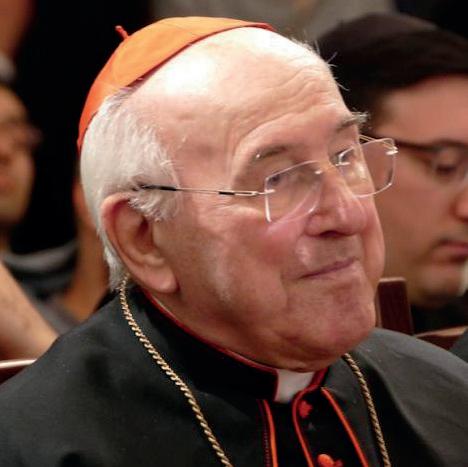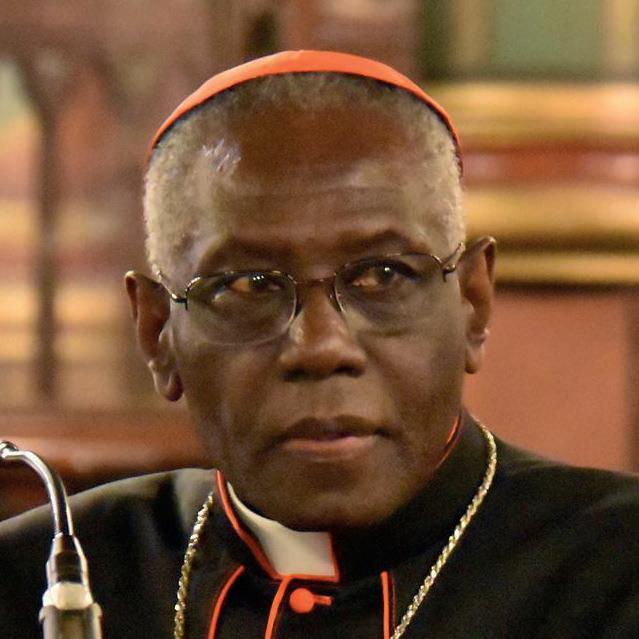
9 minute read
Reactions to the Amazon Synod working document

REACTIONS
Advertisement
to the Amazon Synod working document:
Since the Extraordinary Synod on the Family in October 2014, synods have become the focus of contentious disputes within the Church with “cardinals opposing cardinals, and bishops against other bishops”.1 For over 50 years supporters of change within the Church have never ceased to promote their agenda. But during this pontificate the synodal process has offered a greater opportunity to pursue that change than at any time since the close of the Second Vatican Council. With the Instrumentum laboris for the Synod on the Amazon, this agenda has reached an even more radical phase. No other document issued by the Holy See has attracted such widespread and serious protest within the Church. Critics of the document have spoken of the “removal of the scriptural principle” from the Church’s teaching and even apostasy.2
What follows is a selection of what we consider as most important reactions to the Instrumentum laboris, presented by some of the most prominent defenders of the perennial teaching of the Church. We hope this is a helpful record to orientate us in the authentic mission and universal teaching of the Catholic Church as we approach the synod on the Amazon.

Walter Cardinal Brandmüller
Extracts from “A critique of the Instrumentum laboris for the Amazon Synod” (LifeSiteNews, 27 June 2019)
“It is truly astonishing that, contrary to former assemblies, the upcoming Synod of Bishops on the Amazon will deal exclusively with a region of the earth whose population is just half that of Mexico City, that is to say, 4 million. This also raises suspicions regarding the true intentions to be implemented in a hidden way at the October assembly.” “Accordingly, the territory — the forests of the Amazon region — even becomes a locus theologicus, a special source of Divine Revelation. These are ‘epiphanic places’ where ‘the reserve of life and wisdom for the planet is manifest, a life and wisdom that speaks of God’ (n. 19). The anti-rational rejection of the ‘western’ culture, which stresses the importance of reason, is characteristic of the Instrumentum laboris. Meanwhile, the subsequent regression from Logos to Mythos is raised to the criterion of what the Instrumentum laboris calls the inculturation of the Church. The result is a natural religion in Christian masquerade.”
“It is impossible to conceal that the ‘synod’ intends, above all, to help implement two most cherished projects that heretofore have never been implemented: namely, the abolition of priestly celibacy and the introduction of a female priesthood – beginning with female deacons. In any event, it is about ‘identifying the type of offi cial ministry that can be conferred on women … in the Church’ (129 a 3).”
“We are witnessing a new form of the classical Modernism of the early twentieth century. At the time, from a decidedly evolutionist approach, the view was presented that, in accord with the continually higher development of man, higher levels of human consciousness and culture also result, whereby what had been false yesterday can turn out to be true today.”
“It is to be emphatically stated that the Instrumentum laboris contradicts the binding teaching of the Church on decisive points, and is therefore to be qualifi ed as heretical.”

“Inasmuch as the fact of Divine Revelation is here even being questioned or misunderstood, one must also speak of apostasy.”
“The Instrumentum laboris for the Amazon Synod constitutes an attack on the foundations of the Faith, in a way that has heretofore not been thought possible. It must therefore be fi rmly and decidedly rejected.”

Raymond Leo Cardinal Burke
Comments made in the Patrick Coffi n Show (13 August 2019) and on LifeSiteNews (19 June 2019)
“The document is an apostasy. This cannot become the teaching of the Church, and God willing, the whole business will be stopped.”
“... [A]lready a certain Bishop in Germany has announced that, if the Holy Father grants a relaxation of the obligation of perfect continence for the clergy in the Amazon Region, the Bishops of Germany will ask for the same relaxation.”

“[T]he Church has understood that, when Our Lord calls someone to the priesthood, he also calls him to perfect continence as an essential expression of the priestly identity with Himself as Head and Shepherd of the fl ock and with His pastoral charity.”

Gerhard Cardinal Müller
Extracts from “On the Synodal Process in Germany and the Synod for the Amazon” (LifeSiteNews, 26 July 2019)
“As it was already the case with the Family Synods, the ‘German Church’ is claiming hegemony over the Universal Church and proudly and arrogantly praising herself as the trendsetter for a Christianity at peace with modernity... However, this has not been explained – and it is also hard to see for any interested observer– why, in the face of the desolate state of the Church in one’s own country [Germany], they now feel called to be a model for others. They use the neutral and pleasant-sounding expressions ‘wholesome decentralisation’ (Instrumentum laboris no. 126) and ‘de-Romanisation of the Catholic Church’ (earlier, this was called the anti-Roman aversion); but really what they value is the mythology of the Amazon and of western ecological theology over Revelation; as well as the hegemony of their ideologues, over the spiritual authority of the successors of the Apostles in the episcopal offi ce.” “The synodal process in the realm of the German Bishops’ Conference is now being linked with the Synod for the Amazon. This is done for ecclesial-political reasons and as a leverage for the restructuring of the Universal Church. Additionally, both events have nearly identical protagonists, and they are even fi nancially and organisationally connected by way of the relief agencies of the German Bishops’ Conference. It will not be easy to control this wrecking ball. Afterwards, nothing is to be anymore as it was, and it has been said that one will not even recognise the Church afterwards.”
“It is striking that both the Instrumentum laboris for the Amazon Synod and the German synodal path do not start with biblical foundations and then orient themselves according to the teaching of the Church developing in Tradition and the defi nitive doctrinal decisions of the Councils and the Pope. Instead, they FOCUS
draw their norms and rules from the putative sociological necessities of the globalised world or from the Amazonian tribe’s traditional forms of organisation.”
“The Magisterium of the Pope and of the bishops has no authority over the substance of the Sacraments (Trent, Decree on Communion under both species, DH 1728; Sacrosanctum Concilium no. 21). Therefore, no synod – with or without the Pope – no ecumenical council, or the Pope alone, if he spoke ex cathedra, could make possible the ordination of women as bishop, priest, or deacon. They would stand in contradiction to the defi ned doctrine of the Church. It would be invalid.”


Robert Cardinal Sarah
Extracts from his book “Le soir approche et dйjа le jour baisse” (transl. by Jeanne Smits, LifeSiteNews, 3 Sept. 2019) “I note with dismay that some people would like to create a new priesthood whittled down to a human scale. If Amazonia lacks priests, I am sure that we will not resolve the situation by ordaining married men, viri probati, who have been called by God not to the priesthood, but to married life so that they may manifest the prefi guration of the Union of Christ and the Church (Eph 5:32). In a missionary impulse, if each diocese of Latin America generously off ered a priest for the Amazon, this region would not be treated with such contempt and humiliation through the creation of married priests, as if God were unable to raise in this part of the world generous young people who are willing to give totally their bodies and hearts, all their capacity to love, and all their being in consecrated celibacy.” “If by a lack of faith in God and by an eff ect of pastoral short-sightedness the Synod for the Amazon were to decide on the ordination of viri probati, the fabrication of ministries for women and other such incongruities, the situation would be extremely serious. Would its decisions be ratifi ed on the pretext that they are the emanation of the will of the synod fathers? The Spirit blows where it wants, of course, but it does not contradict itself and does not create confusion and disorder. It is the spirit of wisdom. On the question of celibacy, it has already spoken through the Roman councils and pontiff s.” “If the Synod for the Amazon took decisions in such a direction, it would defi nitively break with the tradition of the Latin Church. Who can honestly say that such an experiment, with its risk of adulterating the nature of the priesthood of Christ, would remain limited to the Amazon? Certainly, the idea is to confront emergencies and necessities. But necessity is not God! The current crisis is comparable in its severity to the great haemorrhage of the 1970s, during which thousands of priests left the priesthood. Many of these men no longer believed. But do we still believe in the grace of the priesthood?”

“I want to make an appeal to my brother bishops: do we believe in the omnipotence of God's grace? Do we believe that God calls workers to his vineyard or do we want to replace him because we are convinced that he has abandoned us? Worse still, are we ready to abandon the treasure of priestly celibacy under the pretext that we would no longer believe that he gives us the opportunity to live it to the full today?”
“The people of the Amazon have a deep need for priests who do not just do their work at fi xed times before returning to their families to care for their children. They need men who are passionate about Christ, burning with his fi re, devoured by the zeal of souls. What would I be today if missionaries had not come to live and die in my village in Guinea? Would I have wanted to be a priest if they had been content with just ordaining one of the men of the village?”
1. The third message of Our Lady of Akita on October 13, 1973, the anniversary of the fi nal visions and miracle of Fati ma, includes the following warning: "The work of the devil will infi ltrate even into the Church in such a way that one will see cardinals opposing cardinals, and bishops against other bishops. The priests who venerate me will be scorned and opposed by their Confreres. The Church and altars will be vandalised. The Church will be full of those who accept compromises and the demon will press many priests and consecrated souls to leave the service of the Lord.” htt ps://olrl.org/prophecy/akita.shtml 2. See the commentary on the Instrumentum laboris by Dom Giulio Meiatti ni OSB “Promoti ng a biodegradable Christi anity”. The English translati on is available at: htt ps://www. lifesitenews.com/news/benedicti ne-monk-calls-amazon-synod-working-doc-biodegradable-christi anity-in-searing-new-criti que.











